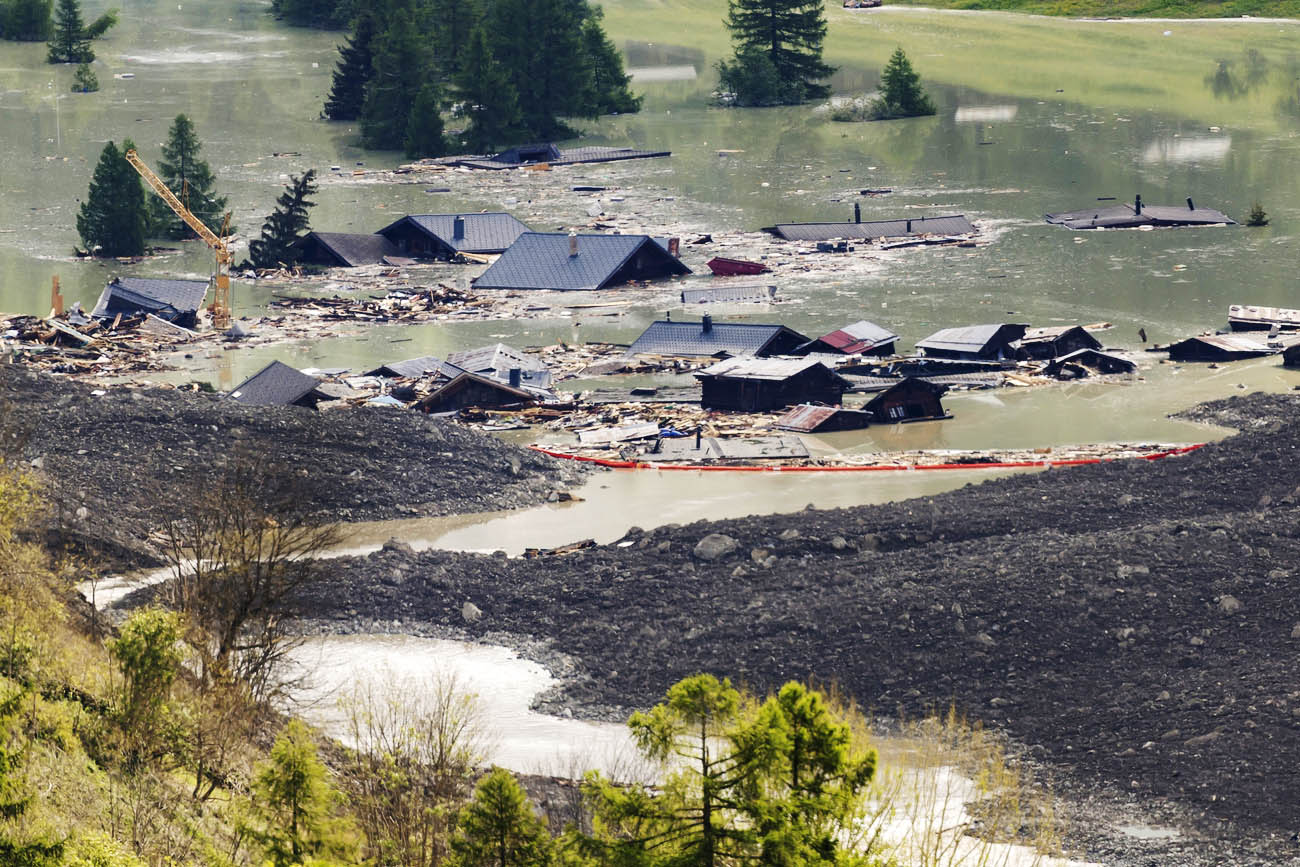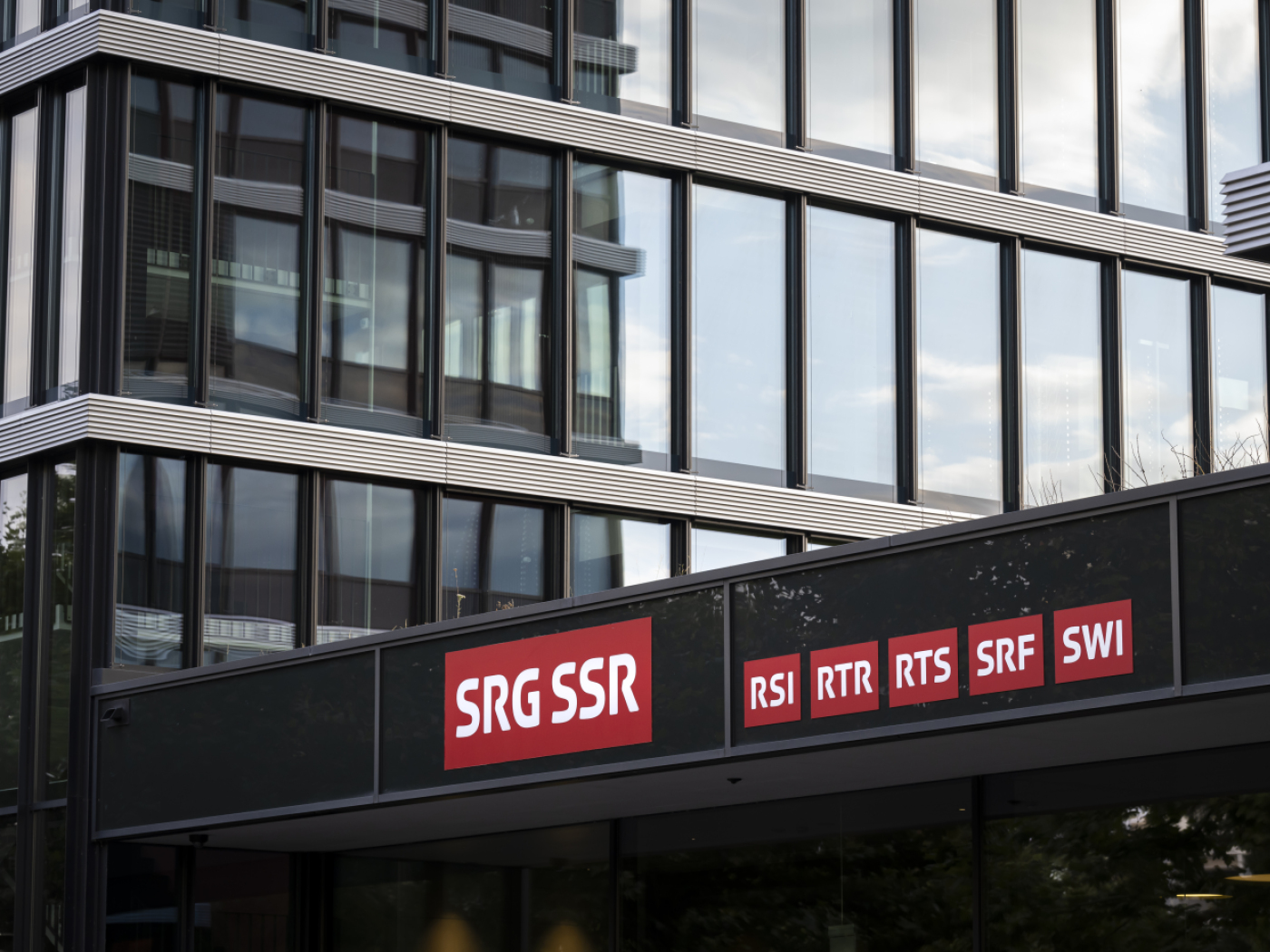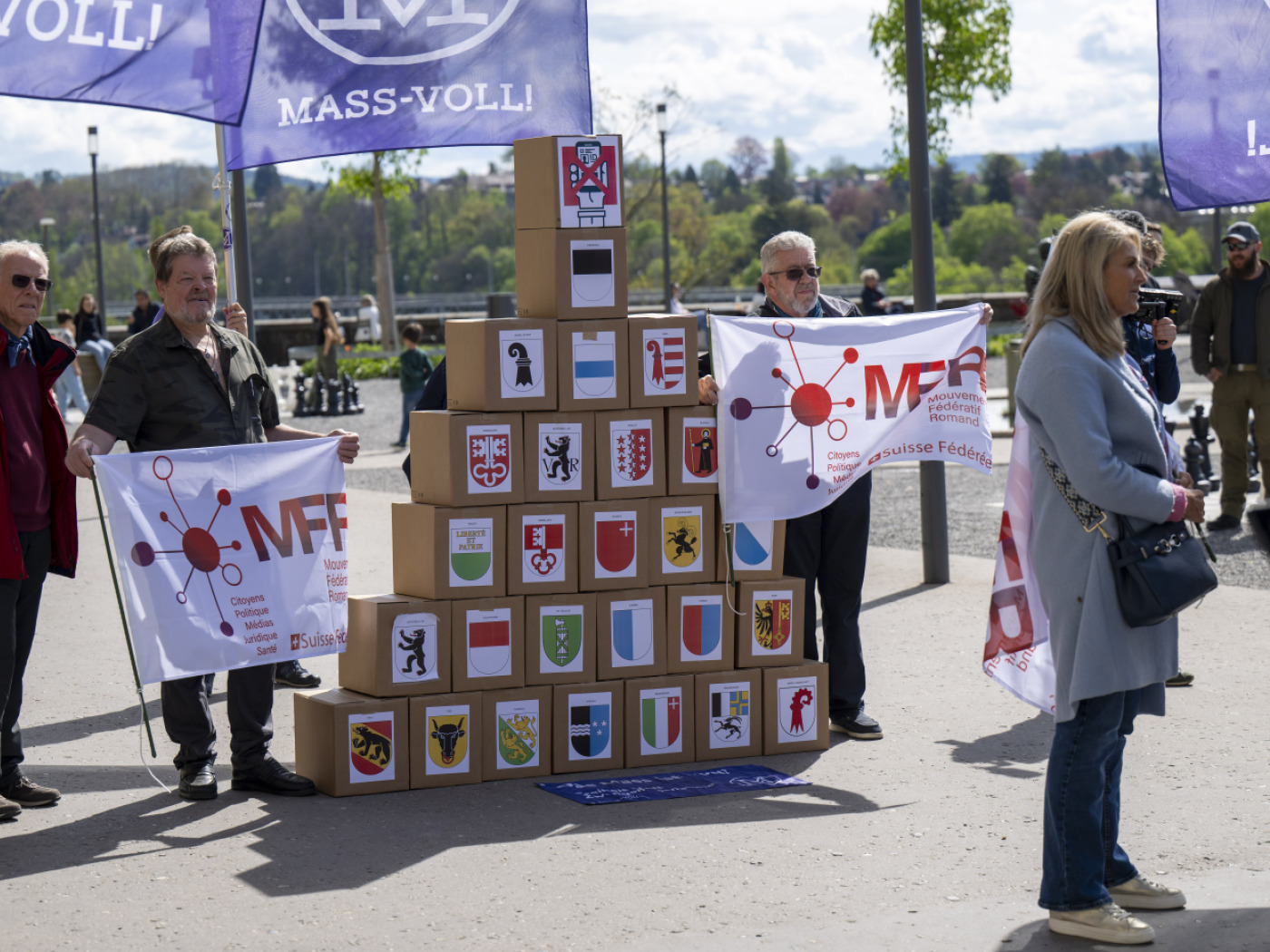
Swiss parliamentary session sets stage for noisy national debates

The summer session of parliament drew to a close last week. What's clear is that political debate in Switzerland is picking up again. Parliamentarians focused on several key people’s initiatives that Swiss voters will decide upon soon.
It hasn’t been this quiet in Switzerland for ages. The last federal election was almost two years ago, and the only nationwide vote since then – which had a predictable outcome – was emblematic of the country’s political slumber. In February, the “environmental responsibility initiative” was soundly defeated and had low voter turnout – just 38%. Since then, in a country known for its frequent voting habits, things have been about as exciting as the passing of seasons. It looks set to stay that way until late summer, when voters will decide on the introduction of electronic ID (e-ID).
While things remain calm at home, outside Switzerland, the world is in turmoil. US President Donald Trump is turning the world order on its head, the Middle East is caught in a spiral of escalation, Russia is intensifying its attacks against Ukraine and Europe is building an increasingly determined ring of defence.
Disaster in Blatten brings unity
There is a well-worn joke about Switzerland that Foreign Minister Ignazio Cassis heard on the sidelines of Queen Elizabeth II’s funeral in London in 2022. “When the world falls apart, flee to Switzerland. Everything happens so gradually there, that even the apocalypse arrives two years late.”
But if disaster happens, as it did in Blatten last month when a glacier collapsed wiping out the Swiss mountain village, it is well monitored and assessed so that the crisis team can quickly move on to the rebuilding phase.

More
Blatten: what price for preserving Swiss mountain life?
The Blatten landslide set the tone for parliament’s summer session during its first week. It was not on the agenda, of course, but the disaster was quickly given top priority. Rarely has parliament stood so united – and been so humbled. It was a stark reminder that even in a country renowned for its technical expertise, there are forces of nature that no amount of money or planning can contain.
Not long after the disaster in Blatten, parties went back to spinning the event for political gain. But there was a moment of unity, a “campfire moment” in parliament, which will likely be the last for a long time to come. Now the mood is shifting, and it is going to get loud.
The EU treaties have arrived
Midway through the three-week session, the federal government published the new package of agreements that Switzerland concluded with the European Union in 2024. It reignited a heated debate which has divided Switzerland for over three decades. At its core lies a basic question: how much political independence is Switzerland willing to trade for economic access to the European market?
The full text of the new EU treaties has finally been made public. It did not reveal any real surprises. But it has reignited Swiss political drama. And it will likely not go away until the referendums in 2028. For now, what is most surprising is actually how little attention the long-awaited details have received.

More
The Swiss-EU bilateral treaty updates, explained
Where do the parties stand?
One of the big questions is where the free-market centre-right Radical-Liberal Party will go from here. It is still divided on the issue of Europe and is currently also searching for a new president. Party leader Thierry Burkart announced he would step down on the second day of the session.

Parliament’s corridors echoed with talk about Burkart’s resignation. Once a defining force on the federal level, the Radical-Liberals are being put under increasing pressure by their more assertive rivals, the right-wing Swiss People’s Party, and by growing public scepticism about the economy. Finding a way out of this squeeze will not be easy.
The left-wing Social Democratic Party also has some internal fine tuning to do on Europe. Even the ever-triumphant populist Pierre-Yves Maillard, a Senator from canton Vaud, has surprisingly broken ranks on the electricity agreement.

More
Swiss-EU ties finally find a sense of stability
A journey to the ballot box
In the third week of the session, parliament finally rolled out proposals to the voters. Several popular initiatives were up for negotiation. The Senate rejected both the inheritance tax initiative from the youth section of the Social Democratic Party (JUSO) and the so-called citizens’ service initiative. The People’s Party’s neutrality initiative also stood little chance of winning support, and the climate fund initiative from the Left-Greens also failed. None of this is final yet, as it will all be put before voters over the next twelve months. And the debates over neutrality and inheritance tax in particular promise to be highly charged.
Licence fee ‘halving’ initiative
So much for the period of calm in politics. The House of Representatives debate on the popular initiative, known as the Swiss Broadcasting Corporation (SBC) initiative or “halving initiative,” offered a taste of upcoming hostilities. It seeks to reduce the radio and television licence fee, which funds Swissinfo’s parent company SBC. The initiative proposes to reduce the fee from the current CHF335 ($380) to CHF200 per year. The debate in the House was heated but respectful and featured a record number of speakers. In the end, it was soundly defeated.

More
Swiss House rejects initiative to cut radio and TV licence fee
The initiative will now go to the Senate for discussion. It is an issue that hits voters in the pocket, and the SBC brand is a cultural institution that almost everyone has their own opinion on. That gives it strong mobilisation potential. The public will vote on it in 2026.
Another indication of what lies ahead was a House of Representatives debate on so-called, “e-collecting”. This system requires an electronic identity, the e-ID, which will be the subject of a nationwide vote on September 28.

More
Switzerland to hold referendum on introducing electronic ID
Proponents say e-collecting would make it safer and more reliable to organise popular initiatives and referendums.
More participation in sight for Swiss abroad
Following the scandal surrounding fraudulent signature collection, a broad alliance of left and centre-right parties rallied behind the idea of using a digital identity to protect signature collecting from fraud and forgery in a verifiable process.
Green Party parliamentarian Gerhard Andrey, who represents the supporters, calls e-collecting a modern extension of direct democracy. But Benjamin Fischer of the People’s Party disagrees: “Popular initiatives and referendums are not internet surveys.”
E-collecting is also relevant for Swiss citizens living abroad. For most of them, every step Switzerland takes towards digitalisation is welcome. It makes it easier for them to participate. For the first time, e-collecting could provide the Swiss Abroad the opportunity to submit their signatures for a popular initiative or referendum.
As already mentioned, voters will first need to decide whether to adopt the new electronic ID system in a nationwide vote on September 28. Officially launched on the second-last day of the summer session, the e-collecting campaign will fuel debate during the summer break.
It has been decided that the 13th old-age pension payment will be financed through higher salary contributions and an increase in value-added tax (VAT).
A Senate decision may be of interest to Swiss citizens living abroad who invest in cryptocurrencies. It backed a plan to include crypto assets in the automatic exchange of tax information. The measure is planned with 74 partner states – the United States, Saudi Arabia and China not among them. The House of Representatives has yet to debate the proposal.
Military funding has also cleared an important hurdle. The House of Representatives has approved plans to procure armaments worth around CHF1.7 billion ($2.08 billion). They also signed off on decommissioning the F-5 Tigers flown by the Patrouille Suisse demonstration team.
The House of Representatives wants to reintroduce the so-called “conscience test” for compulsory military service. The aim is to make it more difficult to switch from the army to civilian service. A majority believes that this will help ensure that the army has enough conscripts. The bill still has to go through the Senate, and a referendum is already in the pipeline.
The Senate wants to ease restrictions on Swiss arms exports, allowing the Swiss defence industry to operate under less stringent rules.
The supply of cash in Switzerland is to be written into the constitution. Parliament has approved the counter-proposal to the popular initiative “Cash is freedom”.
Edited by Samuel Jaberg and Marc Leutenegger/jg. Adapted from German by David Kelso Kaufher/sb

In compliance with the JTI standards
More: SWI swissinfo.ch certified by the Journalism Trust Initiative


























You can find an overview of ongoing debates with our journalists here . Please join us!
If you want to start a conversation about a topic raised in this article or want to report factual errors, email us at english@swissinfo.ch.